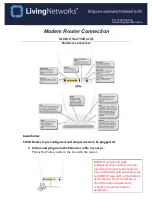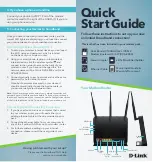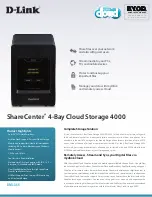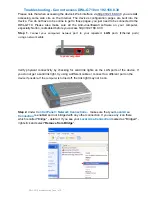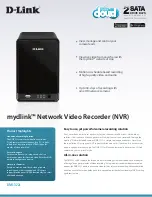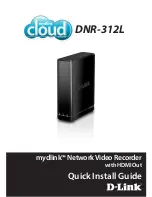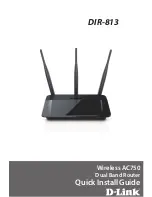
System installation and recovery
This section describes issues related to the system installation and recovery process.
•
When a system that has existing data volumes (non operating system volumes) is restored using
the System Recovery DVD, the data volumes will not have drive letters assigned to them. This is
by design. The volume labels are retained and can be used to identify the data volumes.
Workaround: There is no workaround for this issue; however, drive letters can be assigned to
volumes using
diskpart.exe
or by using Disk Management. To open Disk Management, click
Start
> Run
, enter
diskmgmt.msc
and then click
OK
. Right-click the disk and partition that you want
to assign the drive letter to and select
Change Drive Letter and Paths
.
•
Command-line Tools and Internet Printing Client features are not installed by default with the
operating system.
Workaround: Use Server Manager to manually install these features:
1.
In Server Manager, select
Features
and then click
Add Features
.
2.
Select
Command-line Tools
(located under
Windows Server Backup features
) and
Internet
Printing Client
in the features list.
3.
Click
Next
and complete the
Add Features Wizard
installation process.
•
After installing the storage system in Chinese or Japanese, some non-Unicode applications display
question mark characters instead of the correct characters. When a storage system is first installed,
either by booting a new storage system or by restoring the system with the System Recovery DVD,
the
Windows Welcome
wizard offers a choice of languages. The second page of the Windows
Welcome wizard allows selection of settings for
Country and Region
,
Time and Currency
, and
Keyboard Layout
. When the appropriate Chinese or Japanese settings are selected, they are
correctly reflected in the
Region and Language
Control Panel program; however, despite the
correct regional settings, some applications that do not support Unicode do not display characters
correctly.
Workaround: Change the regional settings to another language and location, and then back to
Chinese or Japanese. The following steps describe how to change to English settings and then
back to the desired region and language settings.
1.
As a local administrator, open the
Region and Language
Control Panel program:
Start >
Control Panel > Clock, Language, and Region > Region and Language
.
2.
On the
Format
tab, select
English (United States)
from the list of languages and regions and
then click
Apply
.
3.
On the
Location
tab, select
United States
for the current location and then click
Apply
.
4.
On the
Keyboards and Languages
tab, select
English
for the display language and then click
OK
. You will then be prompted to log off. Click
Log off now
.
5.
Log in as the local administrator and open the
Region and Language
program again.
6.
On the
Administrative
tab, click
Change system locale
and select
English (United States)
as
the current system locale. You will be prompted to restart Windows. Click
Restart now
.
7.
When Windows restarts, log in as local administrator and open the
Region and Language
program again. Repeat steps 2 through 6, but this time select the appropriate Chinese or
Japanese setting. Log off and restart Windows when prompted.
•
The time zone selected during the image process is not retained. The image process allows you
to set the time zone; however, the time zone is always set to Pacific time when the OS comes up
for the first time.
Workaround: Change the time zone after the system is fully imaged.
Installation instructions
Instructions for installing the storage system are provided in the HP StorageWorks X1000 G2 Network
Installation instructions
5







